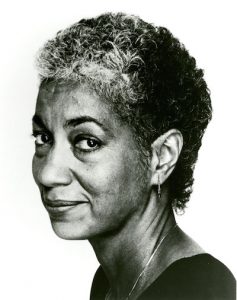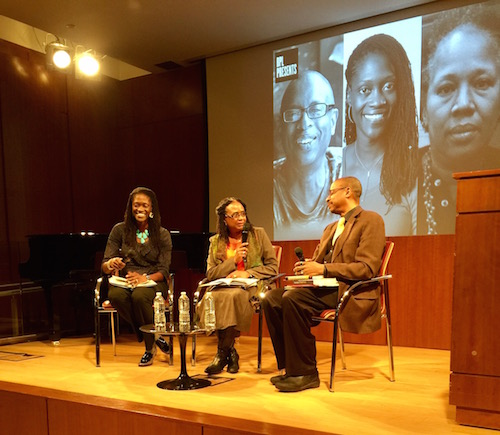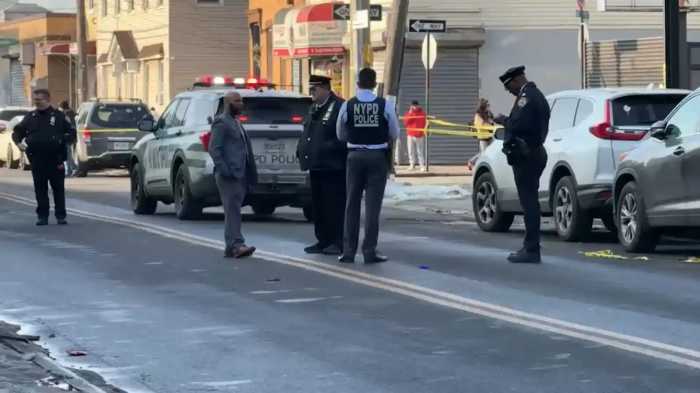June Jordan’s poetry was never impossible to decipher or too obscure for the average reader. Her poetry was accessible to anyone (who wasn’t cloistered nor haughty) in that she advocated for women and the poor.
Last Thursday, in celebration of National Poetry Month, the Center for Black Literature at Medgar Evers College (in partnership with the Center for Law and Social Justice at Medgar Evers College and Brooklyn Public Library) held an event at Brooklyn Public Library’s branch in Grand Army Plaza, celebrating the life and works of Ms. Jordan (1936-2002), a poet, playwright, activist, and leading voice in black female literature who wrote on topics like apartheid and sexism.

“I wouldn’t be here if it wasn’t for June Jordan, she was a model for me,” said E. Ethelbert Miller, editor of Poet Lore, the U.S.’s oldest poetry journal. “I talk a lot about the feminization of African-American literature, and whenever we look at social movements, we have to look at who it’s struggling with, so in this case I look at how men changed starting in the 1970s. June was a model for changing men. As a feminist, she influenced my writing directly in terms of sound and rhythm.”
The conversation, titled ‘June Jordan: Black Writer of Conscience’, featured Mr. Miller (“Season of Hunger, Cry of Pain”), Valerie Kinloch, (“Harlem on Our Minds”), Attorney and justice activist Joan Gibbs, and was moderated by Brenda Greene, Chairperson of the English Department and Executive Director of the Center for Black Literature at Medgar Evers College.
While discussing Ms. Jordan’s professorial tenure at CUNY where she taught Alice Walker’s “The Color of Purple”, Dr. Kinloch said: “June Jordan helped me realize the beauty of black English. And how it’s social, political, and highly charged. It is the language that people use to survive in this world that oftentimes hates and oppresses them.”
The soft-voiced Mr. Miller had earlier in the evening read a lyrically elegant essay by Ms. Jordan that she published in 1983 on Brooklyn: “When I say that I feel Brooklyn in a very deep way, I am remembering that I grew up in an all-black community, Bedford-Stuyvesant. We lived in a brownstone that had a very large oak tree in front. It was extraordinarily beautiful to watch from the parlor window when it rained. It was struck by lightning when I was about 9. The city came to remove it, and I remember my mother’s grief, and my own. I felt nothing would ever grace our house or the block like that again. And I was right.
“Brooklyn is also where so much of Walt Whitman’s work started, and although the place is vastly different now, I feel an environmental kinship with him -and a kinship with someone who wanted to be a recognizably American poet.
“I have opted to live in Brooklyn, as opposed to being forced to live here, because the social composition seems to me the best we’ve got going. The scale and style of the architecture are more deliberately suited to small, personal lives, and we all lead small, personal lives. There’s more of a family orientation and a determination among the immigrants who have come here that Brooklyn is going to work for them. Brooklyn is about as real a place as you can get.”
As the Q&A session involved politically engaged curiosity, Dr. Greene spoke of the work of The Center for Black Literature and how it is giving recognition to literary lionesses such as Gwendolyn Brooks and Ms. Jordan to high school students, as well as the general public.
Furthermore, Dr. Greene mentioned that there would be more political-literary digging next year at the National Black Writers Conference held at Medgar Evers College: “Our next theme is going to be from March 29th through April 1st and is titled the legacy of healing and the literature of black writers, and what we’re planning on doing is having community and intergenerational conversations around politics and race, and not just having them at the conference but beginning them by partnering with Howard University, the Graduate Center, and the Bedford Stuyvesant Restoration Corporation’s Center for Arts and Culture. I think it’s important that we take the conversations outside of the academy and into the community.”
Without doubt, Ms. Jordan’s indelibly affecting verse is immediately approachable to those of us dealing with the last gasp of a dying generation politically out to make our lives a living hell. And yet, when reading the activist-poet Ms. Jordan, you’re reminded that you shouldn’t allow these old men afraid of dying, making as much drama as possible in the meantime, to steal even a minute of our joy.
This event was sponsored by a Humanities New York Action Grant.










